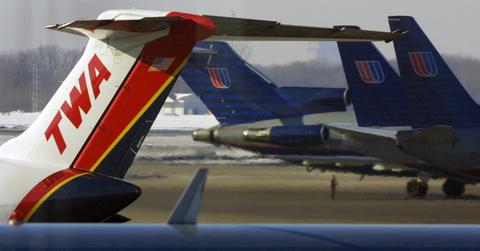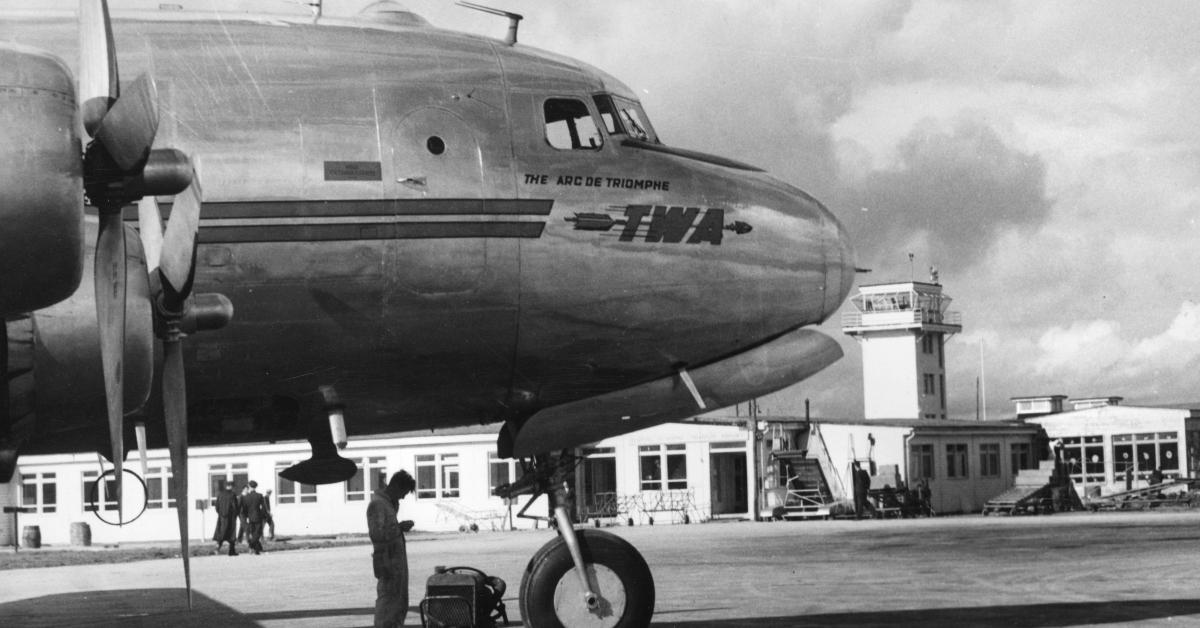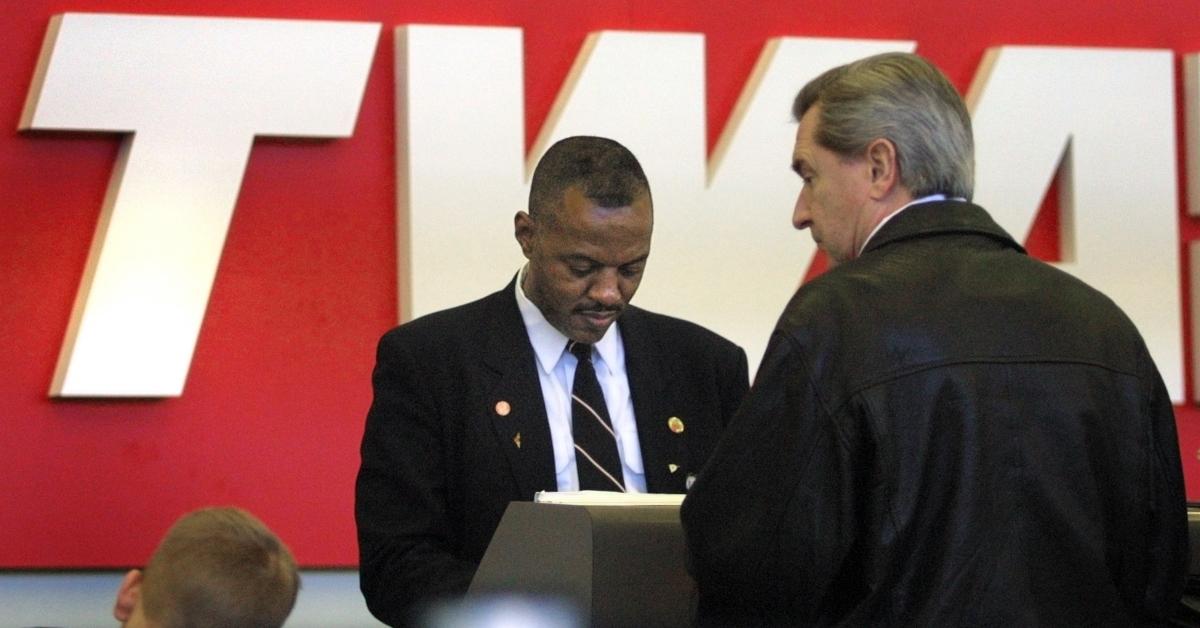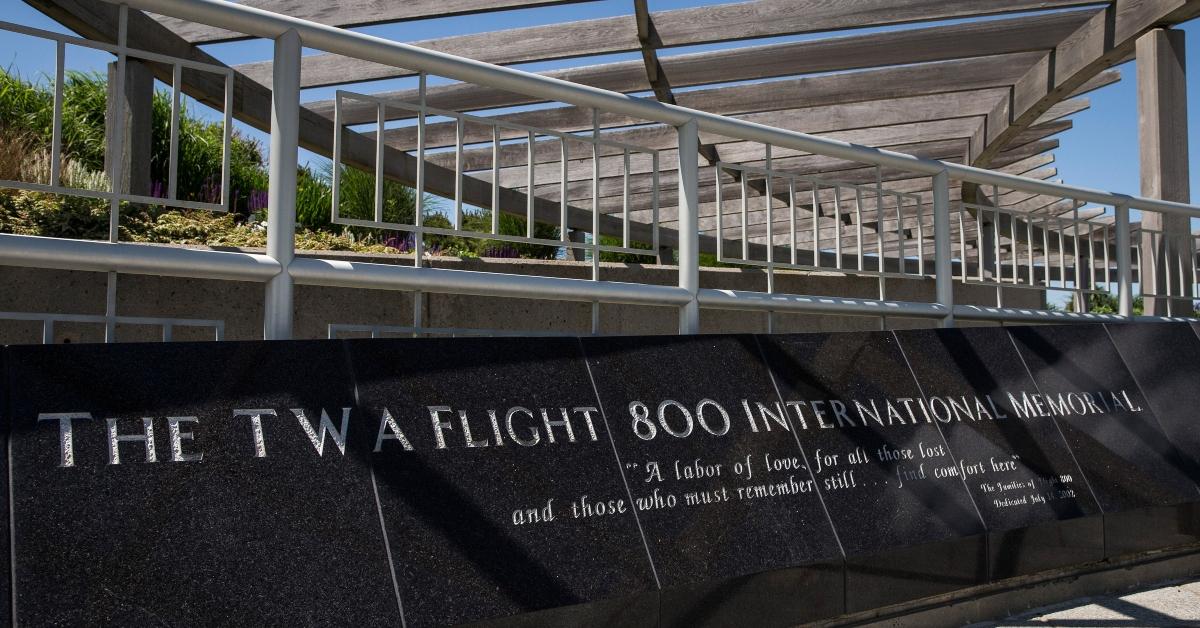What Happened to Trans World Airlines? The Demise of TWA Explained
At one time, Trans World Airlines (TWA) was one of the largest airlines in the U.S. and a pioneer in commercial passenger travel. What happened to TWA?
Feb. 10 2022, Published 2:50 p.m. ET

Trans World Airlines (TWA) used to be one of the largest airlines in the country and a pioneer in commercial passenger travel. What happened to TWA?
Deregulation of the airline industry, several accidents, shoddy management, and three bankruptcies led to the demise of TWA. The airline was sold to American Airlines in January 2001, after filing for its third bankruptcy, and eventually dissolved.

Billionaire Howard Hughes used to own TWA.
TWA got its start in 1930 with the merger of mail carrier airlines Transcontinental Air Transport and Western Air Express. The airline's original name was Transcontinental & Western Air, and it changed to Trans World Airlines in 1950.
In 1939, eccentric billionaire Howard Hughes bought TWA. Hughes owned the airline for 27 years, and he's credited with expanding TWA's international service into Europe, the Middle East, and Asia.
Despite Hughes' wealth, TWA struggled financially because banks wouldn't lend to the airline while Hughes was at the helm. In 1960, when TWA was facing bankruptcy, Hughes gave up control of the airline. A few years after Hughes' departure, TWA went from reporting a net loss of $38.7 million in 1961 to a net profit of over $50 million in 1965.
TWA grew in the 1960s.
The 1960s were a good time for TWA. It became the first airline to introduce in-flight movies and acquired the Hilton hotel chain and Century 21 real estate company. By 1969, TWA became the top transatlantic airline globally and beat out rival Pan Am.
Deregulation hit the airline industry hard.
TWA was on a high when the 1978 Airline Deregulation Act threatened to put a dent in the airline's success. Deregulation in the airline industry caused TWA to consolidate its routes around its largest hub at St. Louis Lambert International Airport.
"Deregulation set fire to the industry," former TWA executive Jerry Cosley told St. Louis Magazine in 2006. "Every carrier had the same problem then as now, and nobody in the industry has yet solved the riddle: How do you compete while effectively managing your costs? The fixed-cost burden—labor, leases, fuel, all variables that management cannot control—ate us alive."

A corporate takeover was the beginning of the end for TWA.
Many people think that TWA's real downfall can be attributed to the corporate takeover by financier Carl Icahn in 1985. Icahn was able to gain majority control over the airline after TWA employees objected to a sale to Texas Air Corporation, whose owner was a known union buster.
Icahn had a reputation for buying and breaking up companies, which he eventually did with TWA. The first nail Icahn put in the coffin for TWA was taking the company private in 1988. Then, in 1991, he sold TWA's London routes to American Airlines for $445 million.
"It became more and more apparent that Carl was not interested in growing the airline but in using TWA as a financial vehicle to acquire wealth for himself," former TWA pilot Jeff Darnall told St. Louis Magazine.
In 1992, TWA was forced to file for bankruptcy and Icahn was ousted from the airline a year later. However, he wasn't done damaging TWA. When Icahn left, he arranged to have the airline give his company, Karabu Corp., tickets at a 45 percent discount off regular fares. The "Karabu deal" reportedly cost TWA an estimated $150 million annually. In 1995, the airline filed for bankruptcy a second time.
TWA had 84 accidents over the years.
TWA's history of accidents and incidents also played a part in the airline's demise. Over the years it was in business, TWA aircraft were involved in about 84 incidents. The first airline accident to gain media coverage was the 1942 crash of a plane carrying actress Carole Lombard. Lombard, her mother, and 20 other passengers were killed.
The worst accident was in 1996 when Flight 800 exploded over the Atlantic Ocean on a flight to Paris. All 230 people on board were killed in the explosion, which was caused by a spark from exposed wiring. TWA was scrutinized for having one of the oldest fleets in the airline industry.

TWA's last flight was in December 2001.
TWA never fully recovered from the negative attention after the Flight 800 accident. In January 2001, the airline filed for bankruptcy again. American Airlines bought TWA and continued to operate it under its existing name for a while. However, the Sept. 11 terrorist attacks in 2001 hit the airline industry hard and TWA officially dissolved. TWA's last official flight was in December 2001.
